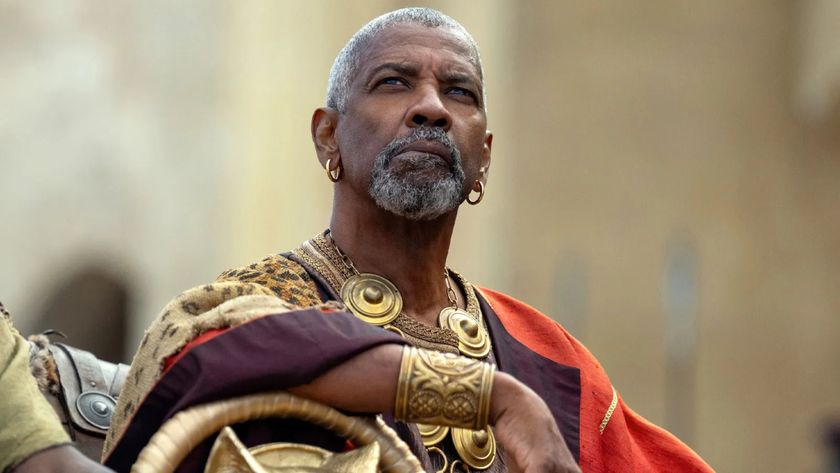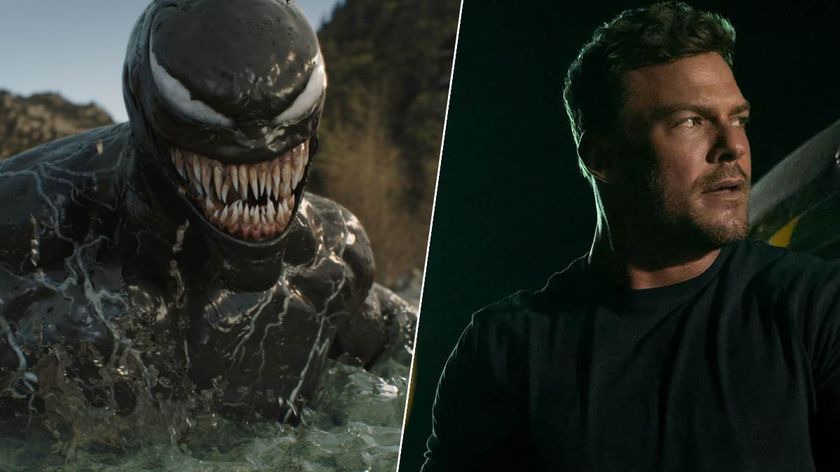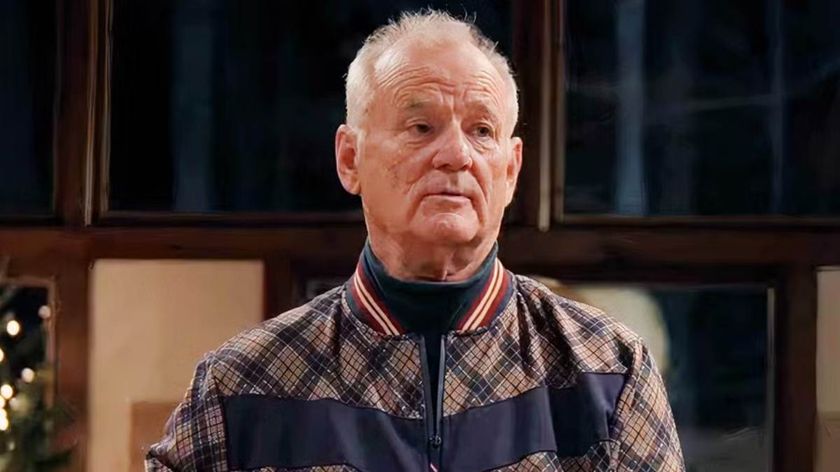Remembering Chadwick Boseman, an actor who brought everything to the screen
We pay tribute to real-life superhero Chadwick Boseman, who was best known for playing Marvel's Black Panther
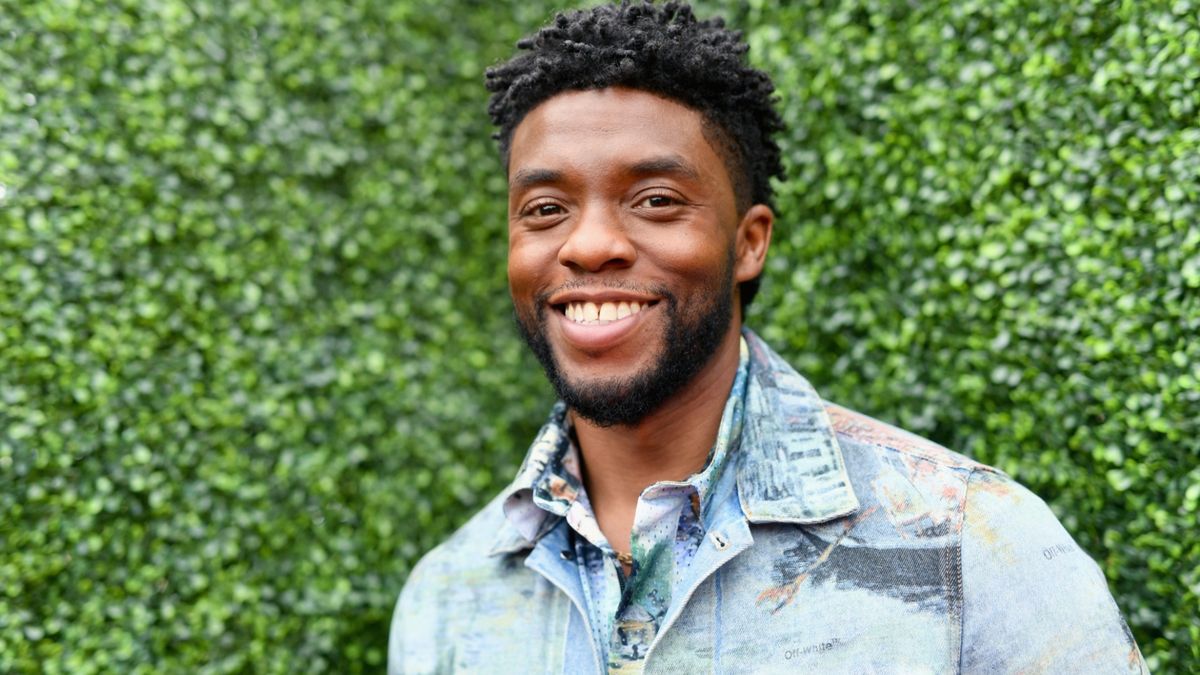
The last time we saw Chadwick Boseman was in Spike Lee’s Vietnam War movie Da 5 Bloods. In it, the inspiring Black Panther star plays the memory of a fallen soldier who is mourned by his comrades.
Boseman’s righteous Stormin’ Norman is described as the embodiment of both Martin Luther King, Jr and Malcolm X. He’s a fierce and benevolent warrior, whose hunched shoulders seem to carry the burden of history, and the systemic and repeated trauma that the Black community endured throughout it. But he carries that with power and pride.
In that way, Stormin’ Norman is a lot like so many of the characters Boseman has played, whether it’s the first Black major league baseball player Jackie Robinson in 42 or the first Black supreme court justice Thurgood Marshall in Marshall. Perhaps Stormin’ Norman is a lot like Boseman too.
I can’t help but wonder how much of himself the actor poured into that role. We now know that Boseman, who passed on August 28, was fighting stage four colon cancer since 2016. One of the final images he would give us of himself is a parting grace note. In a climactic moment from Da 5 Bloods, when Delroy Lindo’s Paul confronts Stormin’ Norman’s ghost, we see Boseman bathing in mist and sunlight, his body frail but his chin up. He has a rifle to his side. But in this final moment, his weapon is love and empathy.
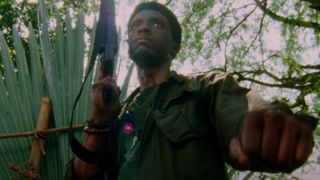
In a career cut tragically short, Boseman made purposeful choices. His career essentially began when he got fired from ABC’s soap opera All My Children for refusing to play a stereotype. Instead, he went on to play the most popular Black superhero and embody real legends, like the aforementioned historical figures and “the Godfather of Soul”, James Brown, in Get On Up. His presence even elevates the unfairly dismissed action thriller 21 Bridges. In it, Boseman plays a detective doing everything he can to try and stop a corrupt police department from shooting a Black man.
What Boseman brought to the screen in every frame, whether in an action thriller or a biopic, was everything. His eyes looked like a deep well of thought. His lips were regularly pursed, as if holding back words and acknowledging that you already know what he’s got to say. Those weighted shoulders would lean in as if he was always ready to pounce and dominate like a jaguar. And yet he still stood tall, oozing pride and dignity, with that Denzel bounce in his step.
He was simultaneously sleek, guarded and majestic. That aura, which was evident from Boseman’s breakout role as Jackie Robinson, made him the obvious choice to bring T’Challa, the Black Panther, to life.
Sign up for the Total Film Newsletter
Bringing all the latest movie news, features, and reviews to your inbox
Ryan Coogler’s Black Panther is still the top-grossing solo superhero movie, landing just behind Stars Wars: The Force Awakens, Avengers: Endgame, and Avatar at the North American box office. Boseman’s passing is being immeasurably felt across the globe because of what he meant to how many people in his most popular role.
Wakanda lost its king. Our kids lost their superhero.
Wakanda forever
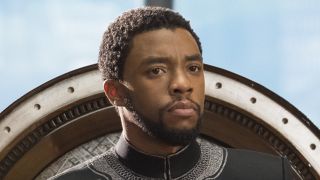
Grieving on Twitter has led to fond recollections from Black Panther’s opening weekend, a cause for celebration that echoed beyond North American borders. There was dancing and dashikis at theatres in the U.S. and South Africa. The community was greeting the momentous occasion with pride.
Black Panther exceeded the limitations of the Marvel formula to meet that epic cultural moment. The movie gave the Black community the rare big-budget spectacle bumping to hip-hop beats while wielding a vision of Afrofuturism. That vision landed squarely on Boseman’s shoulders. The actor was well aware what his representation of the King of Wakanda would mean. Wakanda exists as an imaginary place where Black excellence, unburdened by colonialism, can flourish.
With that context, Boseman pushed back against Marvel when it came to Black Panther’s accent. In an interview with The Hollywood Reporter, the actor explained that decision-makers at Marvel wanted to make things easier for a wide audience by having T’Challa speak with a British accent. Boseman recognized how counterintuitive it was to have a British accent signify royalty and power, perpetuating a colonial attitude in a movie celebrating Black culture. It also wouldn’t make sense for the leader of an African nation that has never been colonized to speak in a British accent. Boseman won that battle, modeling his accent from Xhosa and setting the template for the movie as a whole.
While imagining a nation untouched by colonialism and slavery, Black Panther did not shy away from the trauma that the Black community has endured. The movie is meaningful precisely because it grapples with intergenerational trauma and inherited guilt.

Black Panther’s other star, Michael B. Jordan, embodies what it means to live as a Black man in America. Jordan’s character Erik Killmonger hails from Oakland, where the Black Party Panther was born. He loses his father in the film’s prologue, which takes place in the same year as the L.A. riots. His pain and trauma make him a villain by circumstance.
So much of Black Panther’s emotional stakes are tied up in Jordan’s Killmonger. He’s meant to be the Magneto to T’Challa’s Professor X; remember that Magneto was meant to be the Malcolm X to Professor X’s Martin Luther King, Jr. In that way, the battle between Killmonger and T’Challa, reaches back generations, in a movie that imagines and, in some ways, inspires a new future for Black people.
Jordan’s performance as Killmonger was a punch in the gut because of the hurt and passion it inspired. But Boseman’s performance wasn’t heralded enough for its benevolence. T’Challa was the balm to Killmonger’s open wound. He absorbs the latter’s pain and learns to shoulder the history. And he fights passionately with love and empathy.
That, as it turns out, was Chadwick Boseman’s speciality.
